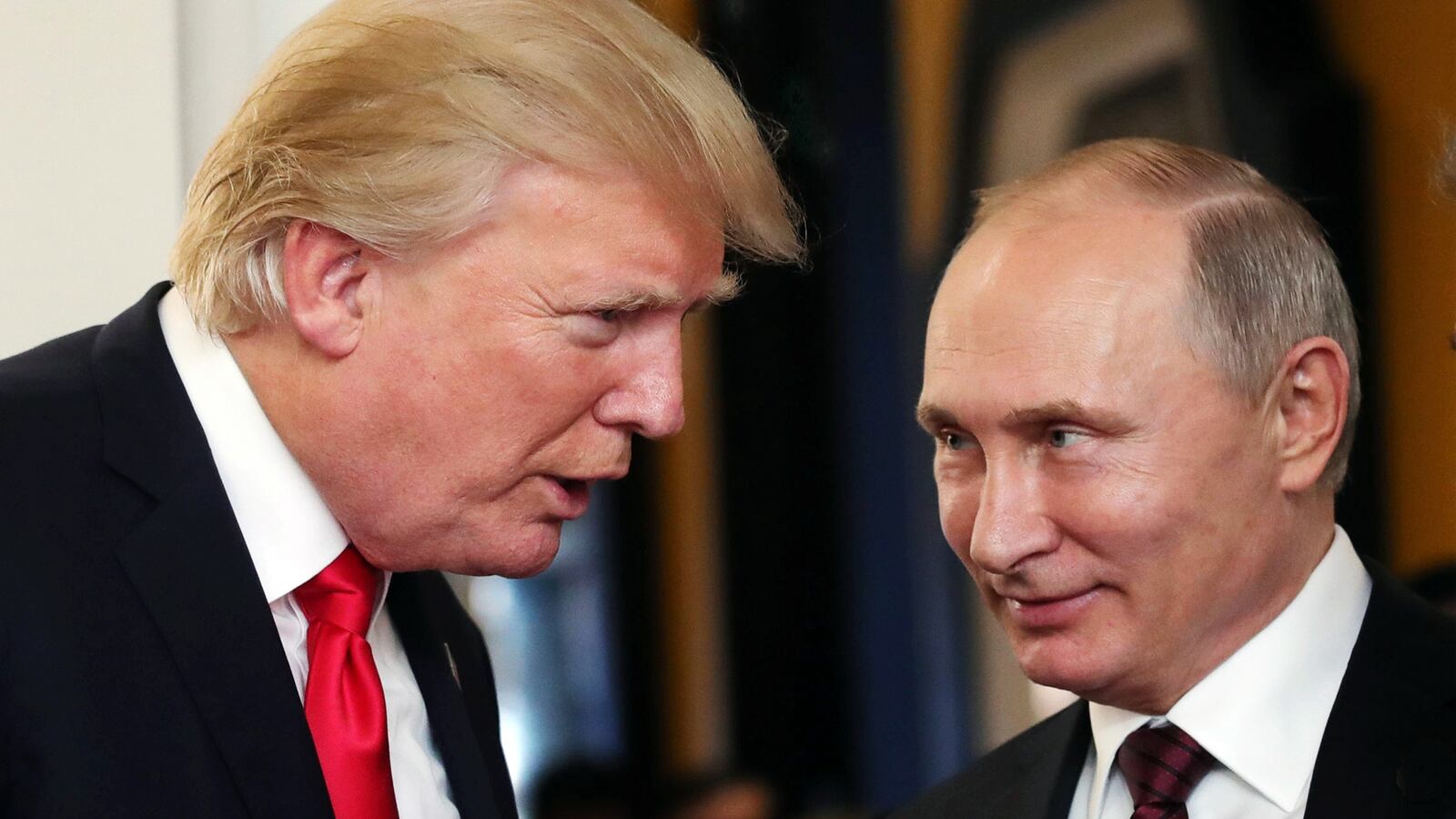Before President Obama’s meetings with President Putin, I remember spending hours in the windowless situation room, soliciting ideas from members of the National Security Council so that we could present the President with affirmative agenda items for the meeting. But that was just one piece of the process. The agenda going into any Presidential meeting, including the one that Trump is going to have with Putin in July, is irrelevant if it isn’t accompanied by analysis (that the President actually listens to) on what to expect from Putin.
Every minute with Putin is a battle. He’s a skilled manipulator and negotiator. Psychological operations are his forte, whether it’s by bringing a dog to scare Chancellor Angela Merkel or purposefully praising President Trump to get his positive attention.
If President Trump continues to disregard and undercut his NSC and their analysis on what Putin will try to do pull at their Summit, he’ll be reduced to the role of patsy in Helsinki just like he’s Putin’s patsy here at home.
Should he not take their advice and analysis, let me offer a bit of my own.
Be aware of wearing your heart on your Twitter sleeve:
Typically, preparing the President would include assessing how Putin sees the diplomatic and security state of play. It’s a no brainer today: Putin definitely thinks he has the upper hand. Historically, the Russians had to do their homework. They had to use intelligence to figure out how to push Presidential buttons. This time around, with a President who routinely broadcasts his heart, insecurities, and paranoia on Twitter, less digging is needed. Putin just has to follow some easy steps to make this “Summit” his own gold medal ceremony. His job may be incrementally harder if Trump can control his social media outbursts in the coming weeks.
Putin’s strategy is to distract. Stick to your guns:
Defining your counterpart’s strategy is another presidential prep ingredient.
Anyone preparing President Trump for this meeting, if they’re not afraid to say it, will tell him that Putin’s strategic move is going to be trying to get President Trump off of his talking points as quickly as possible. The “do not congratulate” fiasco was just a drop in the bucket. We’ve all seen the President consistently go off script and I think few would argue that ad libbing with Putin is a good idea. Winging it with a nuclear armed dictator didn’t work out so well in Singapore and won’t work any better in Helsinki, particularly if Putin gets Trump to disparage our allies and agree to “deals” on issues like Crimea, Syria, or missile defense.
He’ll try to do this by being a compliment slut. He got President Trump to call him just be saying something nice about the U.S. economy, so he’ll be rife with praise to throw Trump off. He’ll also likely use the President’s favorite (un)safe words—words and phrases to which Trupm has a seemingly pavlovian response: “witch hunt,” “deep state,” “collusion,” “conspiracy,” and more.
It was no accident that in his public remarks with National Security Advisor John Bolton in Moscow, Putin blamed the deterioration in the bilateral relationship on an intense political battle in the U.S. It’s blatantly untrue; countering Russia is one of the few issues that has bipartisan support in the U.S. But facts matter to Putin just as much as they matter to Trump. He wanted to poke the bear (Trump’s paranoia about domestic political threats) and did it with Trump’s own national security advisor seated across with him.
So we should expect Putin’s opening salvo to be some combination of low cost flattery and paranoia-inducing words that focus Trump on imaginary internal threats to his presidency rather than the actual Russian threat to all Americans.
Address the Russian elephant in the room, first:
That nasty 10 letter word, “interfered” is hard for President Trump to say even if he has sanctioned Russians for election interference. And any national security staffer worth his salt would tell the President that, analytically speaking, we are still under live Russian attack.
Any country under attack has traditionally prioritized stopping that attack, first. And from a national security perspective this time should be no different. Our ability to negotiate with President Putin on any issue is crippled by the fact that he thinks we’re taking this attack lying down, especially because President Trump refuses to publicly say that it happened and is happening.
Putin knows that every major member of the President’s foreign policy team agrees that Russia attacked and is attacking us, so he’ll try to get the President to continue his own trend of denying the Russian attack because in doing so Trump just opens the door for the attack to continue (if “nothing” is happening then there’s “nothing” to stop right?) Trump must avoid this trap. Failure to do so will only help with Putin’s mission to confuse and demoralize the American public and undermine the credibility of our institutions.
Take off those Russian earmuffs:
Trump’s not known for his ability to listen. So preparing him for any meeting is tough. A Putin summit, however, is on another level because of Trump’s Russian earmuffs. The President’s own inferiority complex over his campaign win (and any influence Russia may have had on the election’s outcome) and his overall desire to emulate strongmen like Putin make him prone to tune out certain points that his advisers might make.
Before he sits down with Putin, Trump will have to take off those earmuffs. I have little hope that it will happen, but in order for Hilsenky to actually be a success—and not an artificial victory that Trump will inevitably claim—it’s necessary.
Sam Vinograd is a CNN National Security Analyst. She worked on President Obama’s National Security Council and at the U.S. Department of the Treasury Under President Bush.






